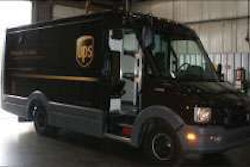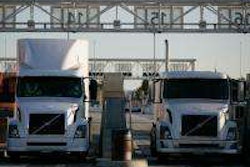Capacity crunch will hammer brokerage and logistics companies
By this time next year, the trucking industry will be short the equivalent of 400,000 units of capacity. The driver shortage will swell to 150,000 by September of this year. In the third quarter of 2012, regulations such as the hours-of-service rule and the Compliance Safety Accountability program will account for the other 250,000 units. This looming shortage of 400,000 units will be double the shortage of 2004, the last time the peak was so dramatic, predicts Noël Perry, a trucking economist for FTR Associates. (For more on the driver shortage, see “Who’s in the driver’s seat?” page 58.)
For the most part, this imminent capacity shortage is good news for carriers. Last year, truck transportation costs rose by 9.3 percent, reflective of a favorable rate environment. A recent “State of Logistics Report” by the Council of Supply Chain Management Professionals said traffic levels are expected to continue rebounding faster than carriers will be able to respond and expand capacity.
While shippers are seeing rate increases from contract carriers, the “ground zero” for capacity shortages is the nonasset brokerage and logistics sector, Perry says.
“We learned a lot from last year,” says Jason Beardall, vice president of truckload sourcing for England Logistics. “The worst is yet to come. As soon as the market shifts, we have to have a really huge change to stop ascending rates.”
We learned a lot from last year.
The worst is yet to come.
England Logistics is a fully owned subsidiary of Salt Lake City-based C.R. England, the world’s largest refrigerated transporter. England Logistics is the 11th largest logistics company in the nation and provides a full array of transportation services, including truckload (refrigerated, dry van, flatbed), less-than-truckload and intermodal.
England Logistics specializes in managing traffic for companies with $5 million or less in transportation spend. Outsourcing is embraced by small shippers that typically assign transportation to the purchasing department. England Logistics often will manage all of its customers’ freight as these companies are not big enough to get volume pricing leverage.

England Logistics, a subsidiary of refrigerated hauler C.R. England, specializes in managing traffic for companies with $5 million or less in transportation spend.
Overall, the current conditions are not conducive to locking in annual rates with carriers. One strategy the company is using to manage the growing capacity shortage is to grow its intermodal business. Converting customer truckload volumes to rail generally increases the margin of those lanes as well.
The challenge of converting truckload volumes to rail is that the next time customers bid these traffic lanes, they will want to bid the lanes for rail and not truckload. Whereas the margin for truckload is generally 13 to 15 percent, bidding freight as an intermodal marketing company (IMC) generally yields a 6 to 10 percent margin.
England Logistics is seeing tremendous growth in providing services to carriers that include factoring and discounts on tire purchases, fuel and repair work. The company operates a business unit called England Carrier Services that passes on savings to carriers by leveraging the national account purchasing power of C.R. England.
Many carriers offer brokerage and logistics services, but England Logistics’ success in using rail intermodal and the resources of its parent company to add value to its carrier relationships is a good example of how to shore up capacity as the industry prepares for a coming crisis.
Aaron Huff is Senior Editor of Commercial Carrier Journal.
E-mail [email protected] or call (801) 754-4296.











